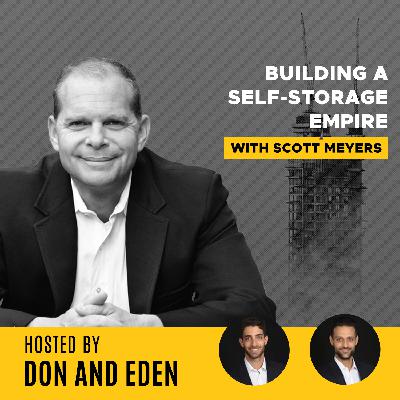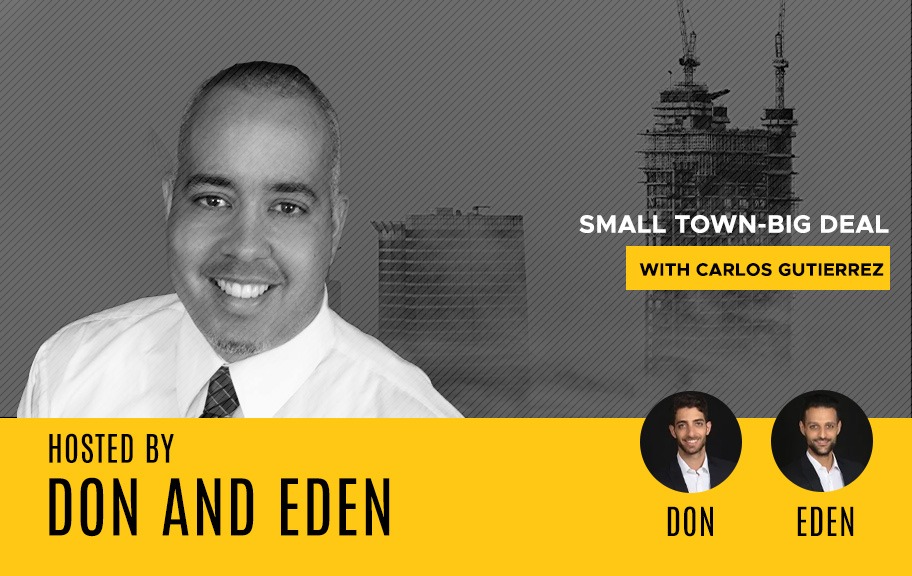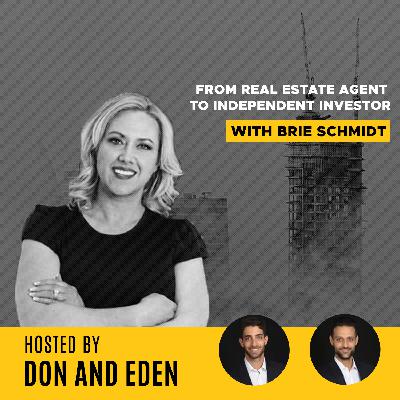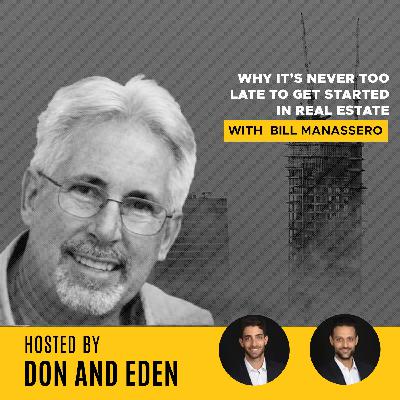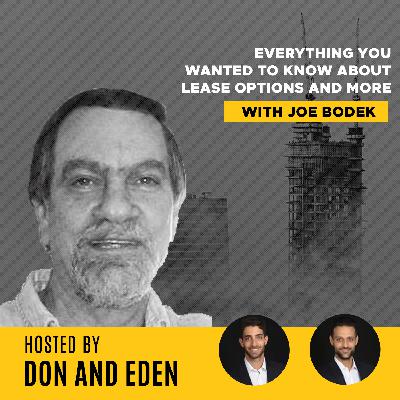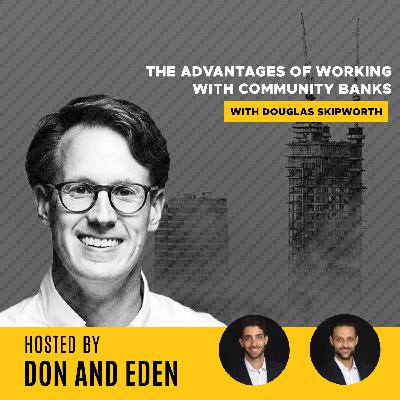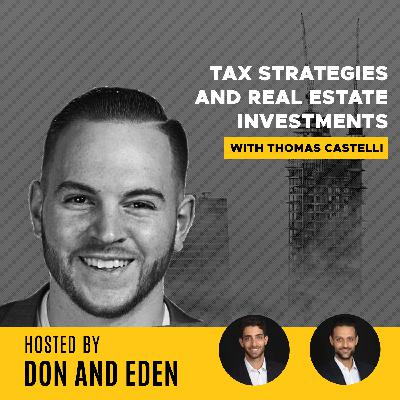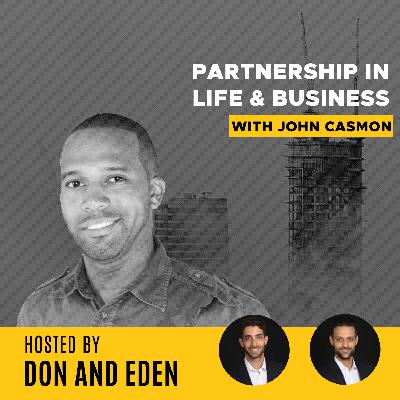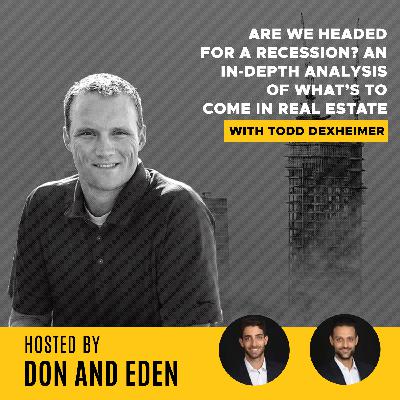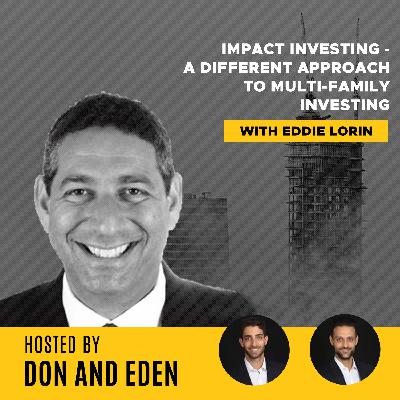DE 32: Building a Self-Storage Empire - with Scott Meyers
Description
Scott Meyers is a real estate investor based in Indianapolis. It all began in 2005 and since then he has grown in the self-storage industry as a developer, owner, syndicator, and operator. He has several multi-million dollar businesses under his belt but his favorite is self-storage and today he is in control of over 7,500 units. Scott started ‘The Self-Storage Mastermind’ to teach others about the self-storage business.
In today’s episode, he discusses how he entered the real estate industry, why he’s chosen to grow with self-storage, and what one should keep in mind before investing in a facility. He gives us insight on one of his memorable deals over the years- what happened, what he learned and what’s going on with it today.
Some Of The Episode Highlights:
- His Self-Storage Business
- His ‘Why’ in Self-Storage
- The ‘Boomerang Property’
- Special Gift for Our Listeners
Connect with Scott:
Website: selfstorageinvesting.com
- - - - - - - - - - - - - - - - - - - - - - - - - - - - - - - - - - - - -
TRANSCRIPTION
Intro: Hey guys, this is Don, your host. In today's episode, I will interview Scott Myers. Scott is an amazing investor and he specializes in one of the most interesting asset classes, self-storage facilities. Today, me and Scott will discuss the nature of this market. Also, as previously mentioned, I want to remind you that you have an opportunity to get a free 30-minute phone call with me and Eden if you review our podcast on iTunes. Simply rate the podcast and write a review of how you feel about the content and the show. To redeem, email us the content of the review to Hello@donandeden.com. You will then be contacted and scheduled for a 30-minute phone call with me and Eden, where you could ask questions or network about any subject or project that you would like. So, let's get started and I hope you guys will enjoy the interview.
Lady: Welcome to the commercial real estate investing podcast with Don and Eden where we cover all aspects of real estate investing with special attention to off-market strategies.
Don: Scott, welcome to the show. How are you doing today?
Scott: Hey, Don, I am fantastic. How about yourself?
Don: I'm great. How's the weather up in Indiana?
Scott: Well, that depends. We had our first snowfall of the year last night. It had about three inches, which is a little bit more than we normally get this time of year. So, I think I'd rather be down next to you conducting this interview right now.
Don: Yeah, I mean, we just got the best weather right now in Florida. It's been very muggy for November, 75 degrees all throughout. I used to live in the Midwest, and I know it kind of gets cold in that period of time of the year, right?
Scott: Sure can. Yep.
Don: Yes. You've been living in Indiana, all of your life, born and raised?
Scott: Born and raised in Michigan. I went to the University of Michigan and after I graduated, I moved down to Indianapolis where I took a job. I was working in the telecommunications industry before I got involved in real estate.
Don: Wow. Okay, so that's a pretty sharp transition. What made you move into real estate?
Scott: When I began looking in investment books on ways to I guess diversify my retirement rather than relying on our 401k stocks and bonds and mutual funds ran across several books, one of which was Robert Kiyosaki's book terms in real estate and the more I looked at more I realized that I didn't want to put my money into the stock market as the poor dad did in Robert Kiyosaki's book 'Rich Dad, Poor Dad.' And so, I began investing in single-family homes and then it took off after that.
Don: Yeah, let's talk about your initial investments in the single-family space. What did you do, fix and flip?
Scott: Began to buy single-family homes, and then fix them up, refinance them and rent them out. And I did that for a number of years until holding. It's kind of a tough gig holding on as a landlord unless you're flipping some as well. So once the economy began to turn in 1999 and 2000 during that downturn, shortly after the government came out with the Community Reinvestment Act, and made it easy, a little too easy for anybody to own a home and so we began then turning around our houses to sell them. So, we became retailers in addition to landlords.
Don: Nice. I know right now you're focusing primarily on self-storage. Tell us about the first time you got to learn about this asset class and this market in general.
Scott: Began looking into self-storage because of, well, that wasn't the cash flow that I wanted to have in single-family homes and apartments on like I had intended. And then when I went back and looked at the business model, I realized that most of my expenses were a result of a related to tenants and toilets and trash. And so, we all love real estate and we love running real estate if it weren't for that. So, I began looking into what are the other asset classes in real estate that has the benefits of real estate, but without all the hassles of the three T's. And it's either parking lots or self-storage. And so, the more I begin to look into self-storage in the business model, yeah, I really liked what I saw. And began attending some industry trade shows, then dip my toe in the water by getting into a partnership with someone in a self-storage facility. And the rest they say is history.
Don: Yeah. So, there is a question that I want to ask you. I know now that you're very big on the self-storage space and you own or you're in control of over 7500 units, I’m guessing in self-storage just since 2005. So, you've been a longtime player in that space, but I want to ask you more about the beginning because I remember I just recently did a transition from residential wholesale real estate into commercial real estate. And even then, being an experienced investor and owning a lot of properties and having capital, it's not easy. So, you said something about going to shows and learning about... So, tell us a little bit about that period of time where you did not make your first deal in self-storage yet, but very attracted to that asset class and what you did in that time period, how much time did it take for you to get your first deal?
Scott: There weren't any resources. You found me, Don because we have an education company as well. We teach people how to go about and do this business and we've been doing that since 2008. But prior to that, that company was really born as a result of that. There wasn't a resource, there wasn't a Scott Meyers out there to learn from it. So, I attended the industry trade shows and those shows are primarily for the folks that are already in the business.
So, I begin talking to the attendees and just asking them, "What do you like best about self-storage and what don't you like about self-storage?" just to get an understanding from several folks that before me and how to get into it. There still wasn't any way to learn the nuts and bolts, the A to Z or how to get into it. When I came home as I began to do more research on my own, I reached out to a consultant in the industry and I spent a day with him and drove around and taking notes and asking about it.
He owned a management company as well. And he managed several facilities for other folks. I asked him as many questions as I possibly could to fill in the gaps and I filled up three notebooks full of paper, just answering the questions that I had about the business and I, like you, been in multifamily and apartments and I understood commercial real estate. But all the nuances and all the intricacies of self-storage to bridge that gap and fill in the gaps took me all day and a bunch of notes and even then there was no way to get it all but that's how I started. And then just sort of trial by the fire going out and talking to other owners and brokers and begin exploring and looking at several facilities to buy.
Don: Okay, tell us a little bit about the market itself. So, what are the biggest players, what is considered a big property? I know so when you're looking at multifamily anything over 200 units is considered very big. Mobile home parks, anything over 150 is considered institutional. So, what would you say is a big deal when you talk about self-storages?
Scott: Yeah, we're in that 400 to 450 unit range and which equates to roughly greater than 60,000 square feet. Those facilities that are larger than those are the ones that are going to be typically institutional, so those are the ones are going to be held by Public Storage or Extra Space or Bridge or CubeSmart number of the big players or reads in the marketplace. Now not all the time we own several facilities that are that size as well with the goal and the intention of eventually off to the reeds and that's what we're developing and building now. That's really what's considered the big boys. And so the reeds are the institutional properties and facilities that size you know, that only accounts for about nine to 10% of all the units and all the square footage of self-storage are below that and are owned by some regional players that own you know, 1, 2, 5, 7 properties. Some national players that aren't considered and then a lot of the mom and pops that we buy our facilities from that can go all the way down to as low as 15 between units per facility.
Don: Okay. So, mom and pop are always good because you can get a pretty good deal. Somebody that owned the property for quite a while, they have a lot of equity

